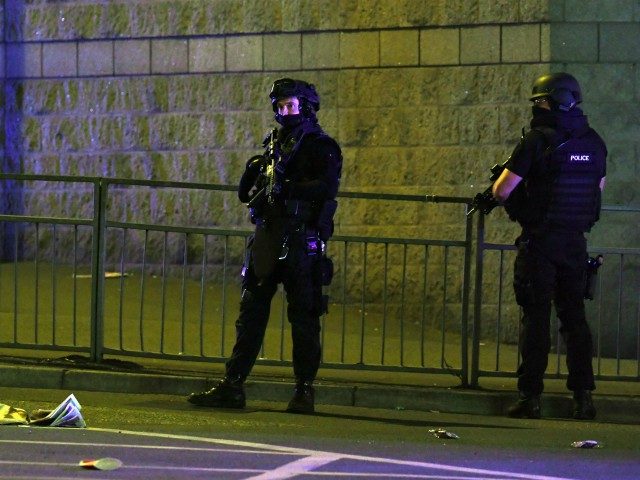An inquest into the 2017 Manchester Arena terror attack found that MI5 knew that jihadist Salman Abedi, the son of Libyan refugees, had visited an Islamist extremist in prison twice, but did not reopen their investigation into him.
On Wednesday, it was revealed that 22-year-old Abedi had visited Abdalraouf Abdallah in prison twice, in 2015 and 2017, and was in “regular contact” with him in the intervening years. Abdallah had been convicted for trying to help his brother and two other Islamists travel to Syria to join Islamic State in 2014.
MI5, the UK’s domestic intelligence agency, also known as the Security Service, was aware of both these visits but did not act upon the intelligence, according to The Times.
Counsel to the inquiry Paul Greaney QC said “on two separate occasions in the months prior to the attack MI5 received intelligence about Salman Abedi. The significance… was not fully appreciated at the time but which in retrospect can be seen to be highly relevant to the planned attack.”
The inquiry also heard that four months before committing the act of terror, Abedi had been at the deathbed of a suspected extremist Muslim preacher Mansoor al-Anezi, who had a “close association” with a failed suicide bomber. Al-Anezi led prayers at a Plymouth mosque frequented by Nick Reilly, who had tried to commit an Islamist attack at a restaurant in Exeter in 2008. The preacher had been arrested and interviewed over his relationship to Reilly. No charges were ever brought against Al-Anezi.
Mr Greaney said that there were “various items related to Anezi” found in Abedi’s home, and had been in “frequent phone contact” with the preacher before his death by cancer in January 2017. Abedi’s second visit to Abdallah had occurred the day after the preacher’s funeral.
The North West Counter Terrorism Unit had first brought Abedi to MI5’s attention in December 2010 when he was 15. He was then made a Subject of Interest in 2014 at age 19, but the Security Services removed him as an SOI because they deemed him not a security risk.
The inquiry heard that between 2015 and 2017, he had met two other extremists and had been in contact with other people linked to SOIs. Despite his affiliations, he had never been referred to the government’s anti-extremism programme, Prevent, according to The Mirror.
The counsel revealed, however, that Abedi was “was due to be considered for further investigation” by MI5 for a meeting scheduled on May 31st, “but tragically this was overtaken by events”.
On May 22nd, 2017, Salman Abedi detonated a bomb at an Ariana Grande concert in Manchester as spectators were leaving, killing 22 people, many of whom were girls and young women, and injuring around 800 others. He was also killed in the blast.
Earlier this week, the enquiry heard that authorities had missed several opportunities on the day to stop the child killer, but police did not intervene allegedly due to “political correctness”.
Members of the public at the venue on the night had alerted security and police over the terrorist, who was behaving suspiciously, carrying a backpack, and at one point praying. One witness said they felt “fobbed off” by authorities when they raised concerns. Another witness said that while she could not remember the details of the conversation with a British Transport Police officer, she said that it was “to do with praying and political correctness”.
Despite it being obvious to members of the public that there was something inherently wrong with Abedi’s behaviour, the inquiry heard that “no steward or British Transport Police (BTP) officer appear to have identified him as suspicious”.
Breitbart London’s James Delingpole wrote this week that the 22 victims had been “murdered by political correctness”. Remarking that findings clearly point to every one of those deaths being avoidable, he wrote:
If Sir John Saunders’s Inquiry does its job, it will make it damningly, brutally clear that Britain’s police are not fit for purpose because they are so riddled with political correctness that they can no longer do their main job of preventing crime and protecting the British public.
Britain’s police, not just the ones in Manchester, but across the country ought to have the deaths of those little girls — not to mention the thousands of other ones raped by Muslim grooming gangs — on their consciences forever.
But they won’t. And I’m not holding my breath for this inquiry to tell it like it is either.

COMMENTS
Please let us know if you're having issues with commenting.